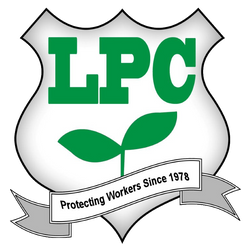
Chicago Protective Apparel 40 Cal Arc Flash AG40-JP Jacket/Pants Kit | Free Shipping and No Sales Tax
Chicago Protective Apparel 40 Cal Arc Flash AG40-JP Jacket/Pants Kit | $1,339.97 No Sales Tax and Free Shipping
Available in sizes SM-5XL
Jacket (SWJ-MS40)
• Over Pant (SWP-MS40)
• Hood (SWH-40)
• Hard Cap (HC-Color-SLT)
• Rubber Gloves (LRIG-2-14)
• Leather Protector Gloves (LLPG-12)
• 15” Glove Bag (GB-15)
• Gear Bag (909-ARC)
• Safety Glasses (SW-SG)
• Ear Plugs (SW-EAR)
In the 2018 edition of the NFPA 70E, the most recent update to the standard designed to protect workers from arc flash hazards, there is a continuing emphasis on risk assessment. Additionally, the consideration of human factors and errors, when assessing the risk for an arc flash event is introduced. As a result, the standard emphasizes the need to use a series of risk controls, one of which is requiring workers to wear PPE. Employers are required to verify that appropriate PPE is given to employees, and the standard sets forth guidelines for evaluating protective apparel. The NFPA 70E has outlined a conformity assessment for suppliers and manufacturers of PPE, which requires the implementation of a registered quality management system, and product testing by an accredited laboratory. In response to these new requirements, CPA’s quality management system is now ISO 9001: 2015 certified for the design, sale, and manufacture of protective and safety apparel. We also ensure that our products are properly labeled, marked, and tested in a laboratory, per the updated standard. By implementing these changes, CPA is continuing its commitment to providing high quality, innovative, and above all, effective protective apparel to keep workers safe. Arc Flash Hazard and NFPA 70E Standard Arc flash events are unique and extremely dangerous exposures that workers encounter while doing electrical work. Although the majority of workplace electrical injuries result from electric shock, the burns from the release of intense radiant energy during an arc flash event can cause severe, and even fatal injuries. Temperatures can reach as high as 35,000°F, with fatal burns occurring even at distances over ten feet. Given how dangerous this hazard is, protective measures must be put in place for worker safety. According to the NFPA 70E, employers are required to perform an arc flash hazard analysis to determine the flash protection boundary distance. Based on the results of the analysis, employees must wear protective clothing for the corresponding PPE category, that has an ATPV of at least the value listed in the “Protective Clothing Characteristics” section of the standard. The NFPA 70E sets forth requirements and guidelines for the selection of arc flash clothing, such as coverage, fit, layering, and very importantly, the fabrics it is made of. Protective clothing made from arc-rated, flame-resistant materials, provide thermal protection, and will not continue to burn after the ignition source is removed. These fabrics protect the user by providing a thermal barrier, and minimize the injuries that result from clothing that continues to burn. The use and recognition of the NFPA 70E standard is growing more widespread, since the vast majority of major companies in the U.S. have some employees who work on or near energized electrical conductors or circuit parts. Garments that meet the ASTM F1506 and NFPA 70E are also in compliance with OSHA 29 CFR 1910.269 Electrical Power Generation, Transmission and Distribution, with regard to protective clothing not contributing to burn severity. In addition, the Department of Energy has required that federal and contractor employees comply with NFPA 70E, and the 2002 National Electric Code (NEC) references the standard. Finally, OSHA considers the NFPA 70E standard “a recognized industry practice.”

